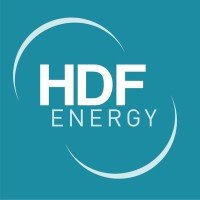Lion appoints Wasco for FEED of its green hydrogen production & refuelling station
Lion is now assessing multiple locations for the operation.

Lion Energy Limited has appointed Wasco Australia to prepare front end engineering and design (FEED) for its first hydrogen production and refuelling station in Australia.
The FEED is expected to be completed by the end of July 2022 and will allow the final investment decision (FID) for the first hydrogen production and refuelling station to be made by the Board. Subject to FID, Lion would aim to start the major equipment procurement process by August 2022 for project completion by early H2:2023.
Lion Energy is now confident hydrogen will play a major role in the decarbonisation of the Australian heavy transportation industry, including the bus sector. It envisions building and operating a network of hydrogen generation and refuelling stations across the eastern states of Australia, which will complement the Hydrogen highway project announced by the New South Wales, Victorian and Queensland governments on 25th March 2022 Wasco is an Engineering and Procurement Contractor (EPC) and Operations and Maintenance (O&M) contractor based in Brisbane. Wasco is part of the international Wasco Energy Group, headquartered in Kuala Lumpur, Malaysia.
Wasco was the EPC contractor for Australia’s first major hydrogen station, the Jemena West Sydney project, completed in 2021. In that project, Wasco constructed a new PEM Electrolyser facility with an underground hydrogen storage pipeline and hydrogen storage and handling systems.
Lion’s Chairman, Tom Soulsby, said, “the appointment of Wasco follows on from our previously released work with GPA Engineering, Queensland University of Technology and the Australian Road and Research Board. Lion has leveraged those studies to focus our business development and marketing on the heavy mobility markets in Eastern Australia.”
According to the Australian Bus Industry Confederation, there were more than 43,000 commercial buses in Australia in 2019, and 1,500 new buses are registered annually on average. With governments’ mandates to transition new buses to zero-emission (i.e., battery-electric or hydrogen) from 2025 onwards, and assuming a 20% market share for hydrogen, about 300 hydrogen buses would be deployed each year under a natural replacement profile.
Using an average consumption of 12.5kg/day/bus, an 8,600 strong hydrogen bus fleet would require about 40 million kg of hydrogen per annum. This volume could be delivered through 270 hydrogen refuelling points of 400kg/day capacity each. For reference, the 20 largest fleet operators operate about 300 bus depots in total, with an average of 61 buses per depot. The eastern states (NSW, VIC, QLD, ACT) represent more than 70% of the addressable market . With more than 625,000 heavy trucks (rigid and articulated) on the roads in Australia and 19 billion km travelled each year , the potential market for heavy trucks is more than 10 times larger than for buses.
